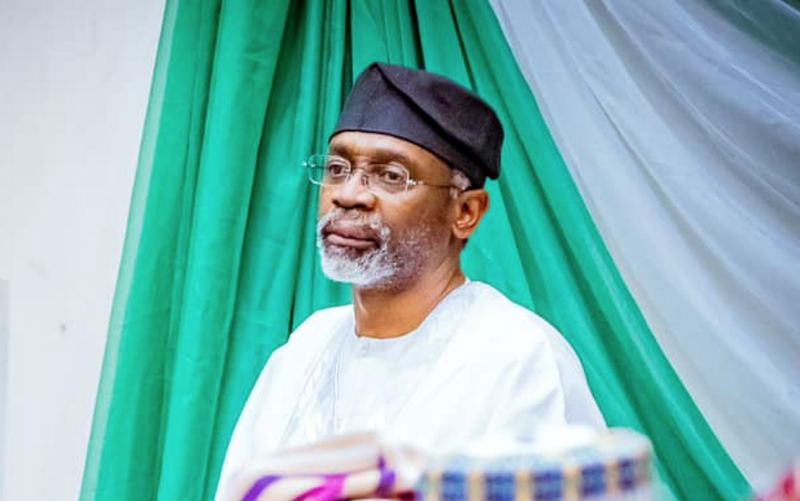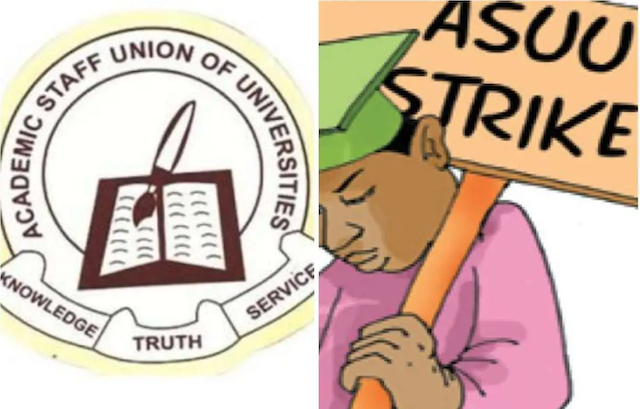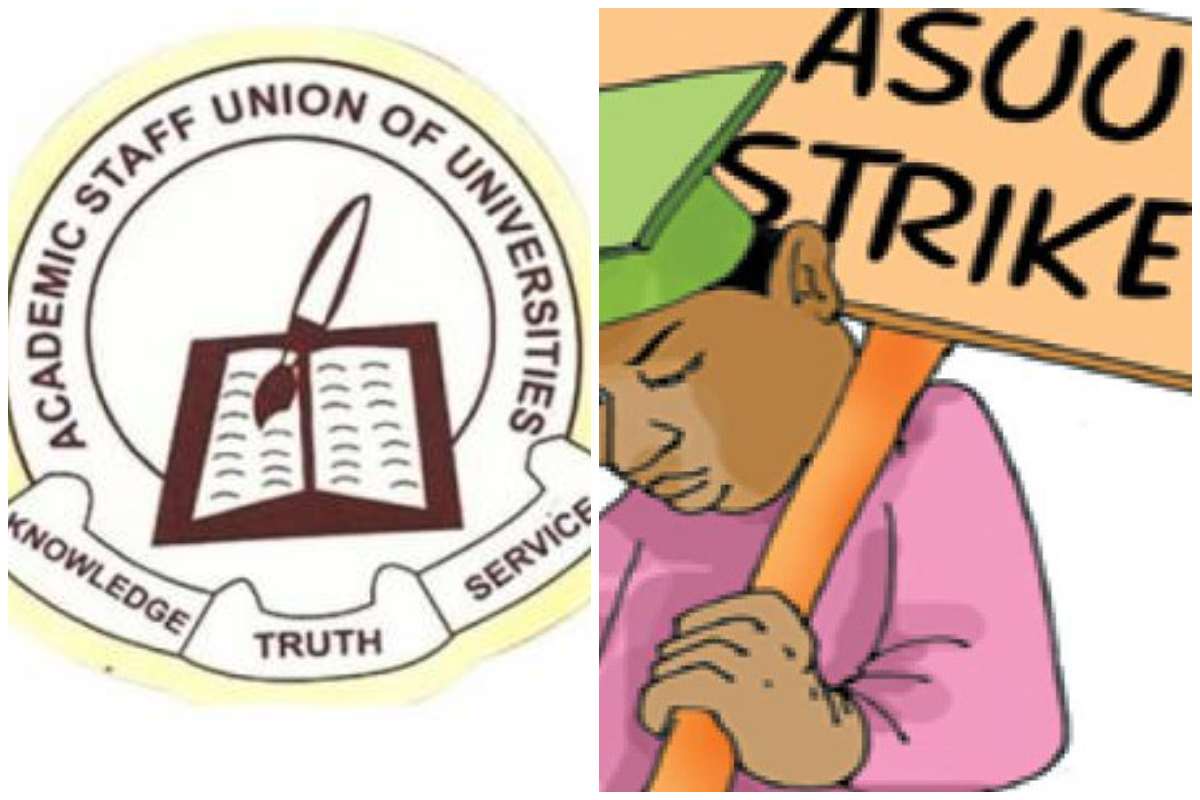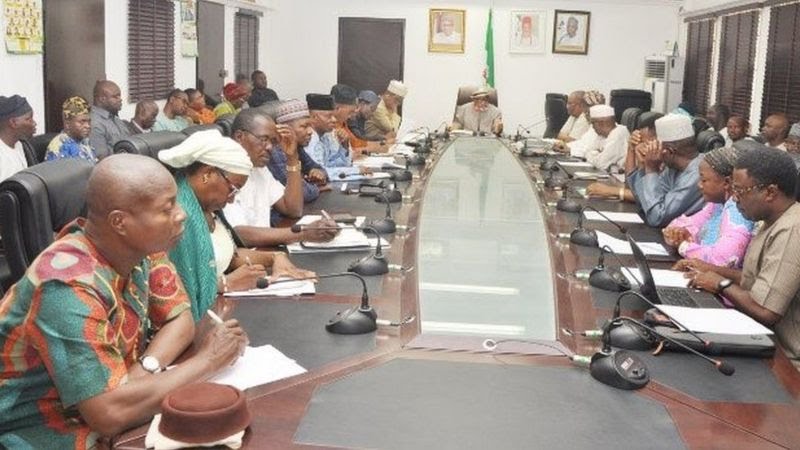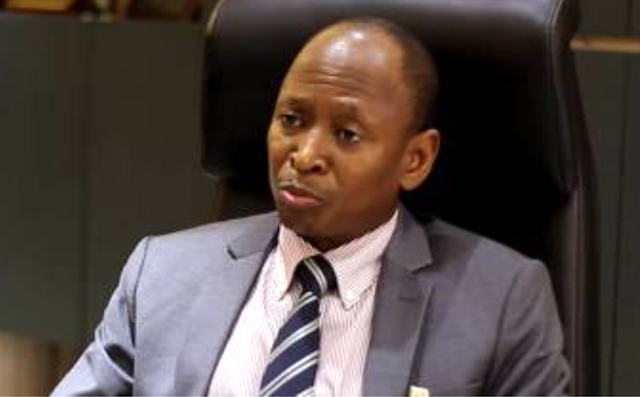The Academic Staff Union of Universities (ASUU) says it is waiting for its lawyers for professional advice, following the National Industrial Court of Nigeria (NICN) order restraining it from continuing with strike.
The President of the Union, Mr Emmanuel Osodeke, disclosed this in a telephone interview in Abuja on Wednesday.
Recall that the union had embarked on the industrial action to press home improved academic environment and welfare of members.
Some of the lecturers demands are funding of the Revitalisation of Public Universities, Earned Academic Allowances, University Transparency Accountability Solution (UTAS) and promotion arrears.
Others are the renegotiation of the 2009 ASUU-FG Agreement and the inconsistency in Integrated Personnel Payroll Information System.
The strike has entered its seventh month the Federal Government instituted a suit before the court to halt it to enable students resume.
This followed the failure of government and the union to reach workable agreements.
However, students through the National Association of Nigeria Students (NANS) have embarked on protests by blocking entrance to the International Airport Lagos and have threatened to block other major roads, if the demands were not met by government.
The NICN granted the order pending the determination of the substantive suit before the court, at the instance of the Minister of Labour and Employment, pursuant to his powers, as provided in Section 17 of the Trade Dispute Act, 2004, Laws of the Federation of Nigeria.
Ruling on the application brought by the Federal Government, the applicant/claimant, Justice Polycarp Hamman held that since the issues in dispute have been referred to the court, ordered ASUU (the defendants) not to take part in any further strike, pending the determination of the substantive suit.
According to Hamman, the argument of Femi Falana SAN, the counsel to the defendants that the act of the applicants had been concluded is of no moment and flies in the face of Exhibit 2 dated Aug. 29, 2022.
Attached to the affidavit in support of the application where the defendants communicated to the Minister of Labour and Employment, their decision to rollover the strike to a comprehensive indefinite and total strike, beginning from 12.01 am on Aug. 29, 2022.
Hamman noted that as the time of reading his ruling on Wednesday, Sept. 21, 2022, the strike action embarked upon by the defendants on Feb. 14, 2022, had not ended.
He maintained that workers cannot go on strike when relevant sections of the TDA have been complied with by the Minister of Labour in conciliating a labour dispute.
He praised the minister for acting in national interest by referring the matter to the National Industrial Court of Nigeria.
While noting that the balance of convenience is crucial to determining an application for interlocutory injunction, Hamman stated that the balance of convenience tilts in favour of the claimants who own the universities and taken into consideration the interest of the students, whose parents cannot afford private universities in Nigeria or abroad.
He insisted that the strike inflicted irreparable damage to public university education in the country, lamenting that university students have been out of school for eight months in a country where age is considered for employment and enrollment into the National Youth Service Corps (NYSC), Nigerian Army, Air Force, Navy and and paramilitary organisations.
Justice Hamman dismissed the claim by the defendants counsel that the strike was prompted by serial breach of agreement by the Federal Government, saying since the matter has been referred to the Industrial Court by the Minister of Labour and Employment, the defendants are mandated by the law not to engage in any further strike, pending the determination of the substantive matter.
He said: “Section 18 Subsection 1 of the TDA, 2004, connotes an obligation, which is mandatory and leaves no room for discretion.
“Section 18 (2) criminalises any contravention of 18(1) and imposes the fine of N100 or imprisonment for six months for an individual and N1000 for a corporate body.
“In this circumstance and on the strength of Section 254.6.(1) b of the constitution, Section 18(1) e of the TDA, Section 7(1) e, 16 and 19 b of the National Industrial Court of Nigeria Act 2006, I hold that this application is meritorious and same is hereby granted.”
Justice Hamman further held that the rephrase by Falana that the court should grant accelerated hearing of the application in place of injunctive relief “is of no moment”, going by the rules of the court.
He maintained that the applicants met the requirements for granting of an injunction, contrary fo the averments of Falana SAN.
Reacting inside the courtroom, lead counsel to the Federal Government, James U.K. Igwe SAN, said: “I thank his Lordship for the ruling, rendered with unparalleled erudition, scholarly analysis and research and which took into cognisance of education as being basic to education in Nigeria.”
FG still prepared to negotiate with ASUU in spite of court victory – Minister
The Federal Government says it will continue to negotiate with ASUU in spite of Wednesday’s court ruling restraining the union from continuing with its seventh month strike.
The National Industrial Court of Nigeria on Wednesday in Abuja ordered the striking lecturers to return to the classroom following a suit filed by the Federal Government.
Minister of Labour and Employment, Sen. Chris Ngige, made Federal Government’s position known when he hosted visiting members of the Nigerian Association of Medical and Dental Academics.
“The court ruling does not preclude us from going on with further negotiation and consultations,’’ he said.
ASUU began its strike to demand that the Federal Government revisits some agreements signed between them in 2009 and also to improve on varsity funding and payment of earned allowances.
The lecturers also want the Federal Government to shelve its Integrated Payroll and Personnel Information System (IPPIS) in paying lecturers’ salaries. The Federal Government uses the IPPIS platform to pay its employees.
They demanded that rather than its IPPIS, government should adopt the University Transparency and Accountability Solution, the payment platform designed by the universities themselves to pay lecturers.
The minister told his visitors that the Industrial Court’s ruling was in the best interest of Nigeria and its people. According to him, the ruling is a win-win for government, for students, for lecturers and for all Nigerians.
“It is a no victor, no vanquished. You doctors in academics are for now members of ASUU, but you are here; even though you have dissociated yourselves and you are working. We want to thank you for working and teaching your students,’’ the minister said.
He noted that pro-chancellors of universities had met with President Muhammadu Buhari and made some demands that included topping up government’s offer and seeing whether there could be some bailout.
Ngige added that the president had assured that he would consult with stakeholders on the request.
The minister also commended the House of Representatives for intervening in the ASUU imbroglio.
Ngige said that he was happy that the Speaker, Mr Femi Gbajabiamila also assured that principal officers of the House would meet with President Buhari over the strike.
He explained that whatever money that would be approved to meet some of the demands would go into the 2023 budget.
“Since the House has showed interest now, it is good and wonderful. When they bring that proposal, the Executive will not have any problem.
“ASUU should also know that this is a step in the right direction. All these things have been promised them by the Minister of Education at their last meeting.
“For me, they should do the needful and go back to the classroom,’’ the minister said.
Ngige said government would soon direct vice-chancellors to reopen the universities in compliance with the order of court.
